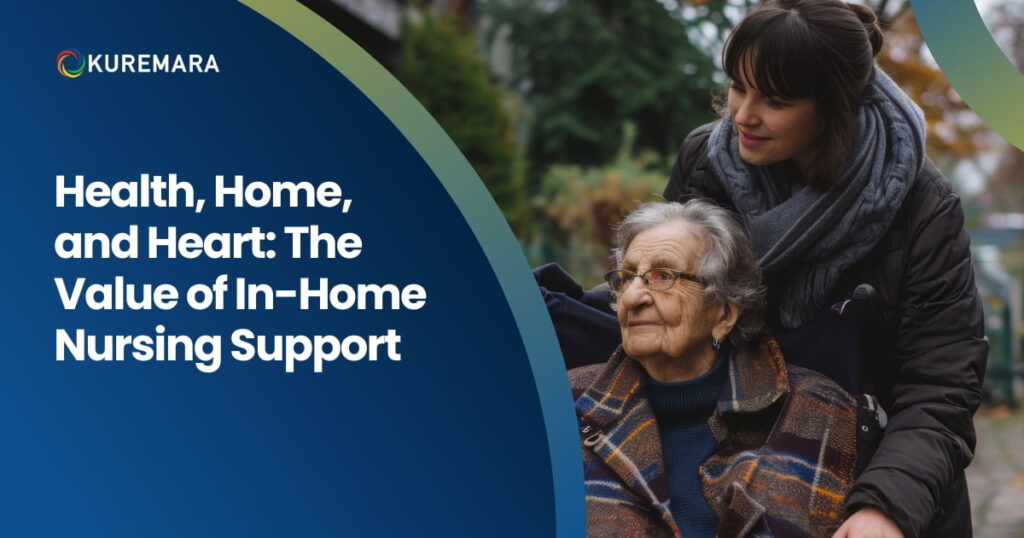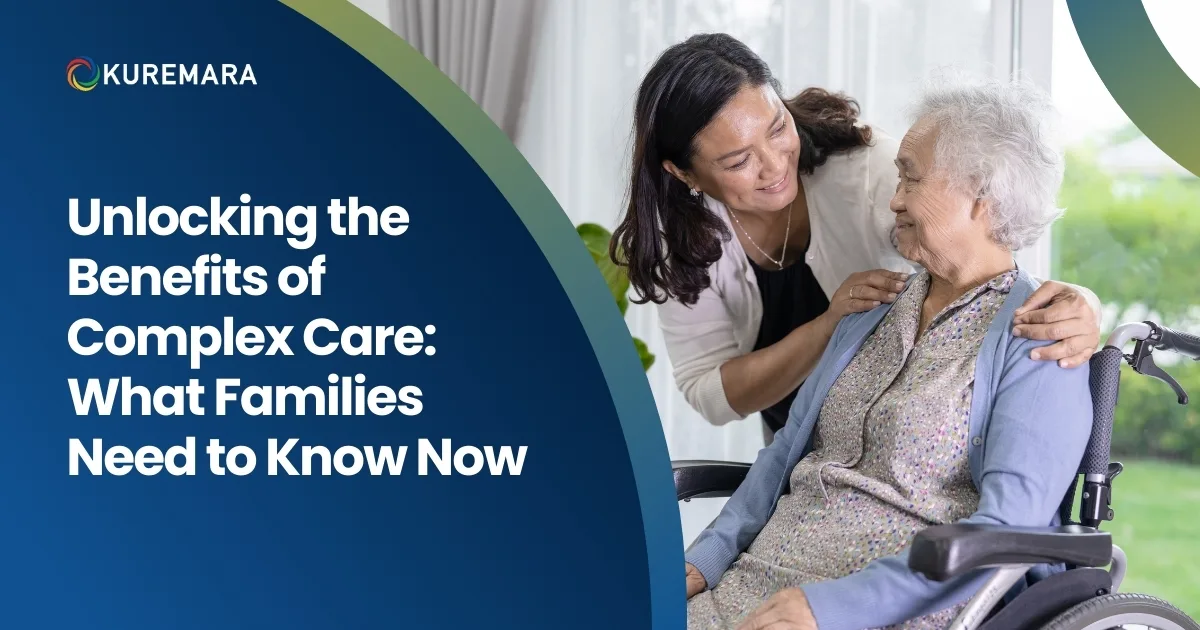
Unlocking the Benefits of Complex Care: What Families Need to Know Now
Caring for a loved one with complex needs can feel overwhelming. Families often juggle between ensuring safety, managing medical requirements, and providing emotional support. This is where complex care steps in. It offers a personalised, professional, and compassionate approach that not only supports the individual but also gives families peace of mind.
In this blog, we’ll explore what complex care means, the different types available, and most importantly, the key benefits it provides for families and their loved ones.
What Is Complex Care? Simplifying the Term
Complex care is a specialised type of support designed for people with significant health or personal care needs. Unlike standard home care, it often involves trained carers, nurses, or specialists who are able to manage advanced medical conditions, daily living assistance, or round-the-clock support.
The aim is to help individuals live safely, comfortably, and with dignity in their own homes or in supported living arrangements.
Types of Complex Care Families Should Know About
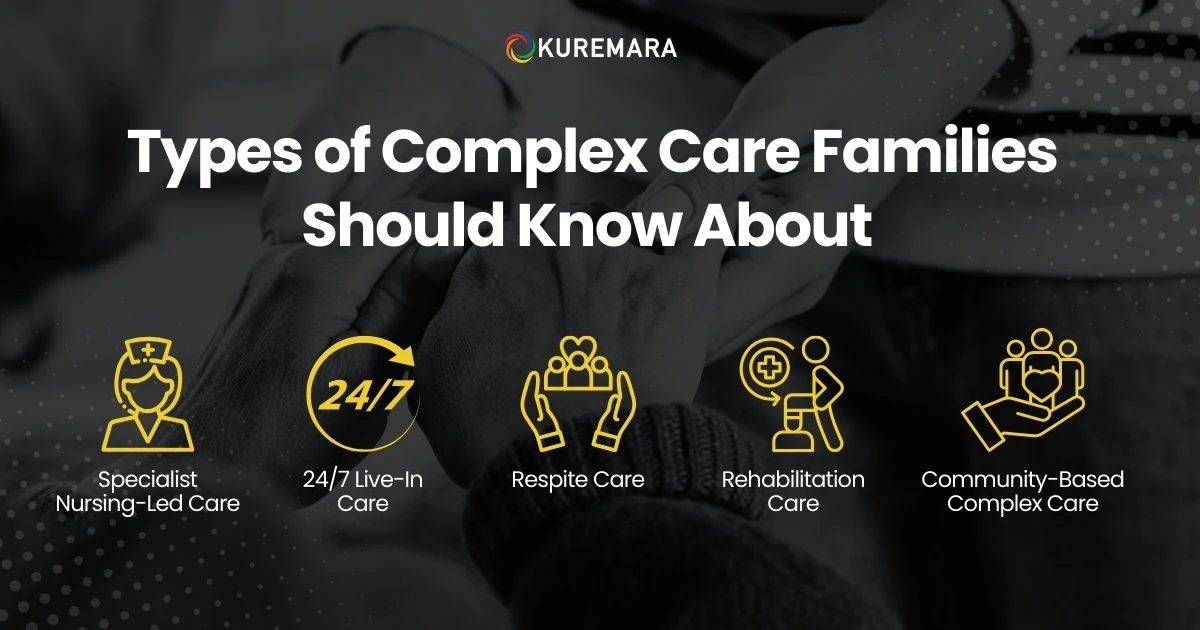
- Specialist Nursing-Led Care: Provided by trained professionals to manage medical requirements such as ventilators, PEG feeding, or medication routines.
- 24/7 Live-In Care: Continuous support for people who require around-the-clock monitoring and assistance.
- Respite Care: Short-term relief for families who provide most of the care but need professional support temporarily.
- Rehabilitation Care: Helping individuals regain independence after surgery, illness, or injury.
- Community-Based Complex Care: Support that helps people stay engaged with their community and social networks.
The Real Benefits of Complex Care for Families
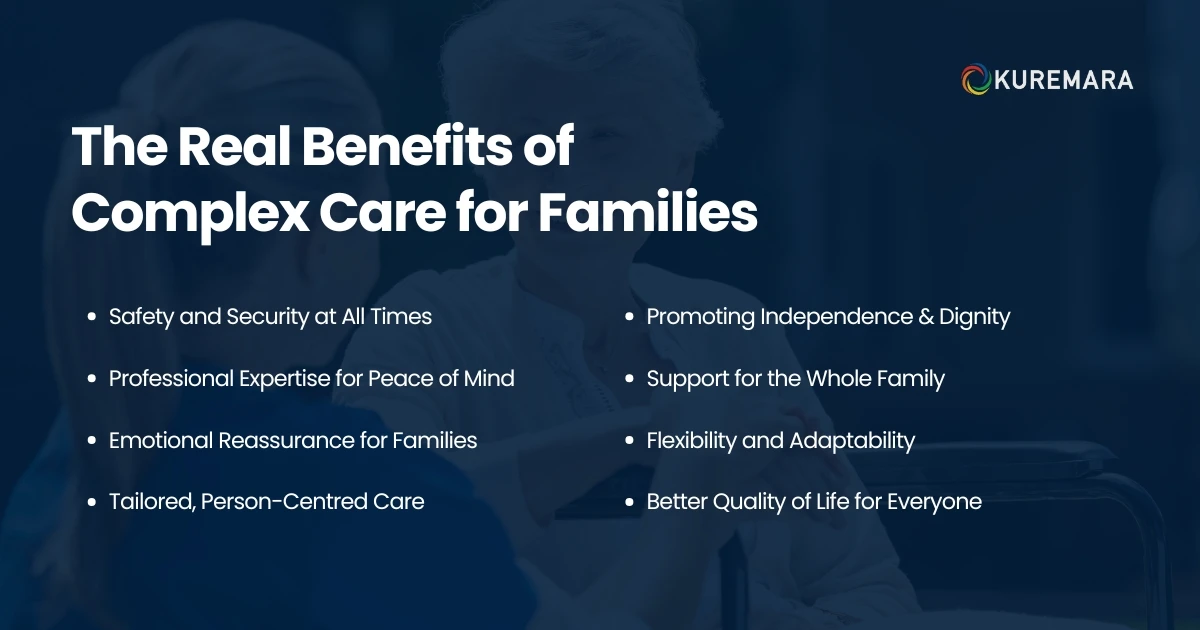
When exploring care options, families often want to know: what difference will this make? Here’s a detailed look at the benefits complex care offers.
1. Safety and Security at All Times
- Trained carers are equipped to handle emergencies, ensuring immediate response in case of medical incidents.
- Families can rest easy knowing someone is always present to support their loved one.
- Safety checks, medication administration, and continuous monitoring reduce risks at home.
2. Professional Expertise for Peace of Mind
- Carers often undergo extensive training in health management, ensuring the highest standards of support.
- Families don’t have to feel alone or unprepared when facing complex health needs.
- Professional input means care plans are designed around both clinical and personal needs.
3. Emotional Reassurance for Families
- Families often experience stress and anxiety when managing everything alone.
- Having professional support allows families to focus on quality time instead of constant caregiving.
- Emotional relief is one of the biggest unspoken benefits of knowing your loved one is in safe hands, bringing peace of mind.
4. Tailored, Person-Centred Care
- Every individual’s needs are unique, and complex care adapts to that.
- Care plans are personalised, covering medical, emotional, and social requirements.
- This flexibility ensures no two care experiences are the same, which families deeply value.
5. Promoting Independence and Dignity
- The goal of complex care isn’t just support, it’s empowerment.
- Individuals are encouraged to remain independent wherever possible.
- Dignity is preserved by focusing on what people can do, rather than only what they can’t.
6. Support for the Whole Family
- Complex care doesn’t just look after the person receiving it, it also supports families.
- Caregivers often provide guidance, advice, and emotional reassurance for relatives.
- Families can balance their personal lives while knowing their loved one is cared for.
7. Flexibility and Adaptability
- Care needs often change over time, and complex care is designed to adapt.
- Families don’t have to constantly search for new solutions; providers adjust plans as needs evolve.
- This ongoing flexibility makes long-term planning much easier.
8. Better Quality of Life for Everyone
- Ultimately, complex care enhances day-to-day living.
- The person receiving care feels supported, safe, and respected.
- Families regain time, energy, and emotional balance, improving overall well-being.
How to Decide If Complex Care Is the Right Choice
For many families, the decision to move towards complex care is not made overnight. It often comes after weeks or months of trying to manage everything alone. Recognising the signs early can help prevent stress and ensure your loved one receives the right support at the right time.
Some common indicators include:
- Care needs becoming too demanding for family members alone – daily tasks such as lifting, administering medications, or managing specialised equipment may start to feel overwhelming. Even the most devoted relatives can find the responsibilities physically and emotionally exhausting.
- Medical support or supervision being required regularly – when your loved one’s health requires frequent monitoring, complex care ensures trained professionals are available to step in, reducing the risk of errors and providing peace of mind.
- Increasing safety risks at home – from falls to medication mismanagement, safety concerns can quickly become unmanageable without professional oversight. Complex care introduces safeguards that keep your loved one secure in familiar surroundings.
- Family members feeling overwhelmed or burnt out – caring for a loved one can take a toll on mental health, relationships, and overall wellbeing. Professional carers can ease this burden, giving families the chance to focus on spending quality time rather than constantly managing care tasks.
Taking the step towards complex care support can feel daunting, but it often results in a positive shift for both the individual and their family.
Choosing the Right Care Provider: Key Things to Look For
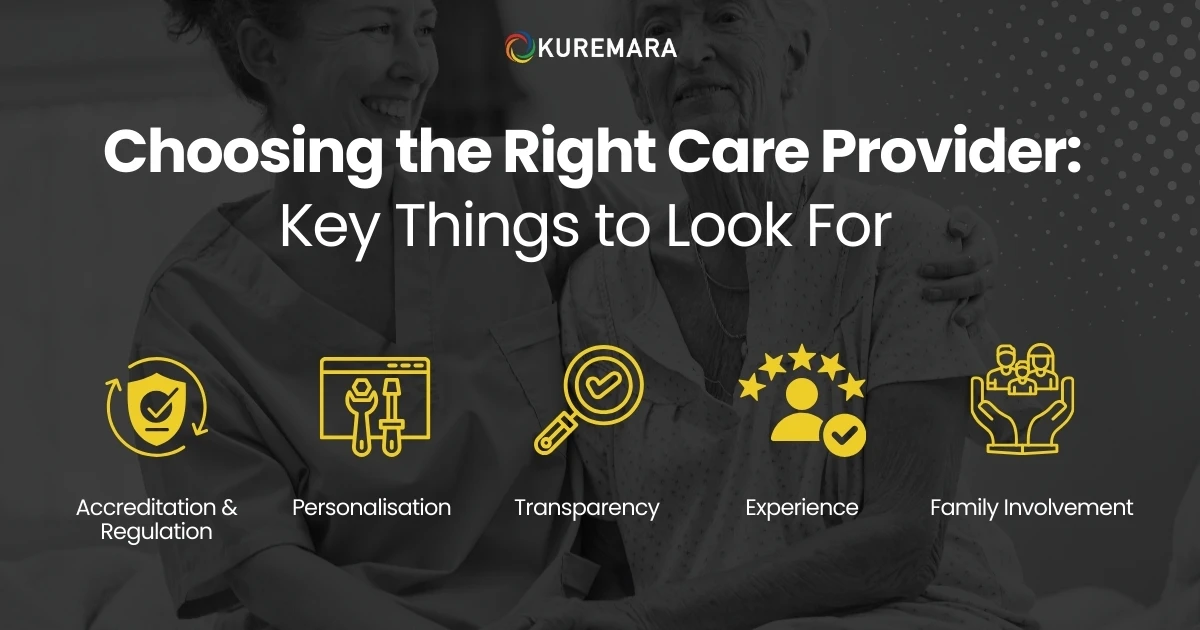
Selecting the right care provider is one of the most important decisions a family can make. It’s not just about who will deliver the care, but also about trust, reassurance, and the confidence that your loved one will be safe, supported, and respected. To help guide your choice, here are some key things to consider:
- Accreditation and Regulation – In the UK, care providers should be regulated by the Care Quality Commission (CQC). This ensures that services meet national standards of safety, effectiveness, and quality. Choosing a CQC-regulated provider gives families confidence that the care offered is regularly inspected and held to professional standards.
- Personalisation – Every individual has unique needs and preferences. A good provider should design a care plan that is truly tailored, considering not just medical requirements but also lifestyle, routines, and personal goals. Personalised care shows respect for individuality and helps your loved one feel valued.
- Transparency – Clear communication is essential, especially when it comes to costs, funding options, and responsibilities. Families should feel comfortable asking questions and receiving straightforward answers, without hidden surprises later.
- Experience – A strong track record matters. Providers with experience in delivering complex care are better equipped to handle both expected and unexpected situations, ensuring your loved one is always in safe hands.
- Family Involvement – Quality care doesn’t exclude families it includes them. Look for providers who encourage regular input from relatives, involve them in planning, and provide updates so families always feel connected to the process.
Discover how Kuremara can help your family find the right balance of safety, dignity, and personalised support.
Final Thoughts: Taking the Next Step with Confidence
Exploring complex care options is not a sign of giving up it is a positive step towards ensuring dignity, safety, and a better quality of life for your loved one. Far from reducing the family’s role, it strengthens it, allowing relatives to focus on meaningful connections while trained professionals manage daily care needs.
For many families, making this transition brings a deep sense of relief. The constant stress of providing round-the-clock care begins to ease, and everyday moments sharing a meal, enjoying a walk, or simply spending time together become less burdened and more fulfilling. Complex care creates the balance where love remains central, but families are no longer stretched beyond their limits.
At Kuremara, we understand that every family’s journey is unique. That’s why we work closely with families across the UK to design personalised care solutions that evolve with changing needs. Our approach combines professional expertise with compassion, always keeping the individual at the heart of every decision.


